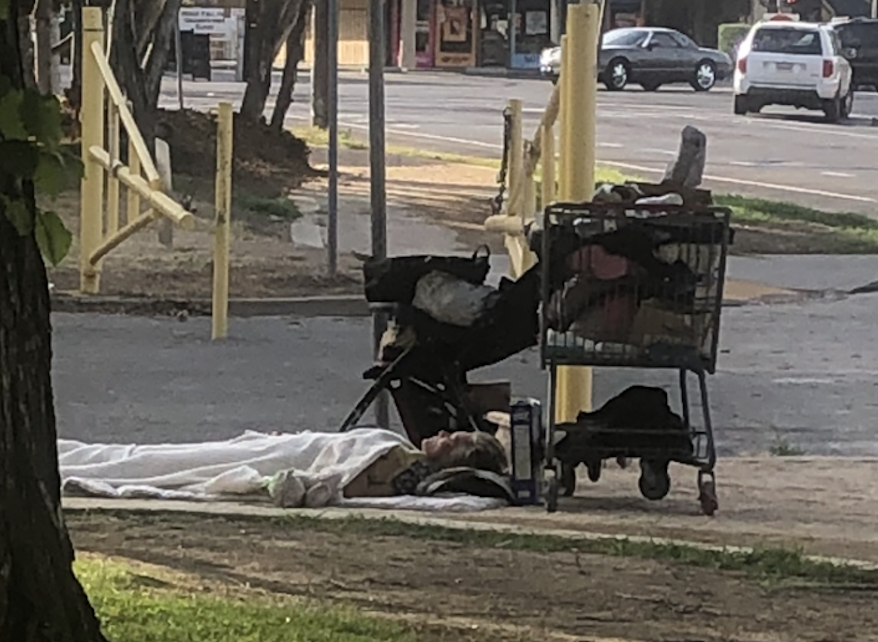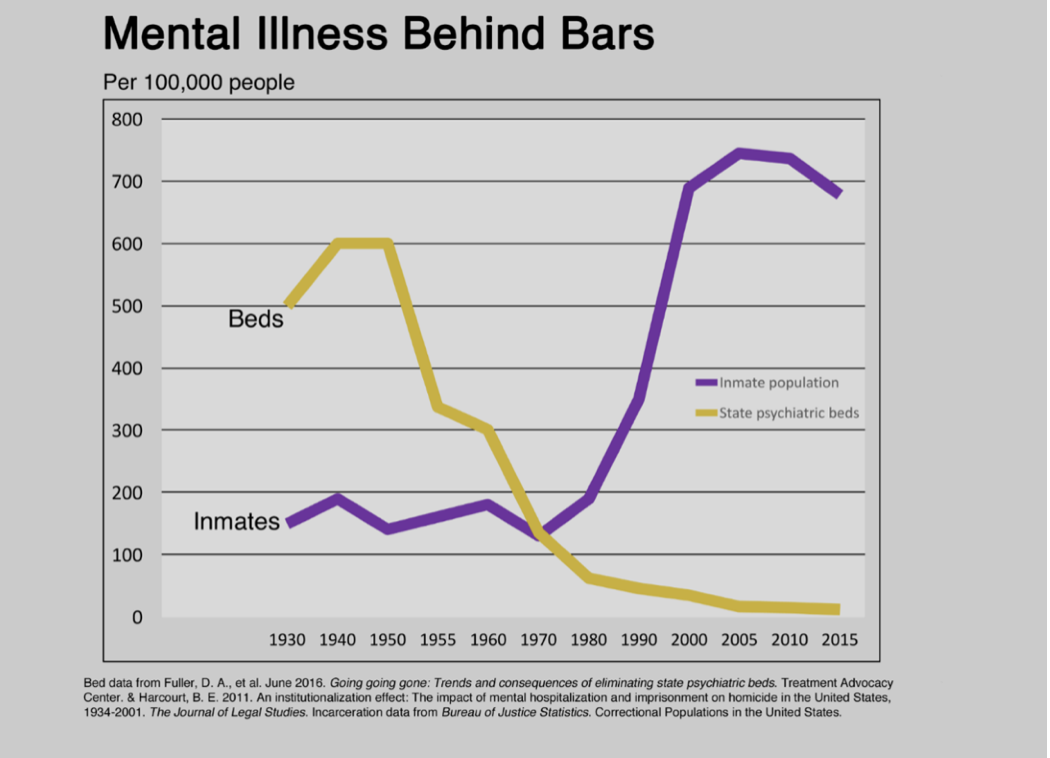
Homeless sleeping on running trail in Wm. Land Park, Sacramento. (Photo: Katy Grimes for California Globe)
‘Civil Rights’ Activists Commit An Uncivil Wrong in California Care Court Opposition
The California Legislature has done a good a job drafting a statute that ‘discriminates’ in favor of the people who need the most help
By Mary Ann Bernard, February 19, 2023 2:26 am
So-called “civil rights” activists are committing an uncivil wrong in challenging California’s new Care Court law. “A coalition of disability and civil rights advocates filed a lawsuit Thursday asking the California Supreme Court to block the rollout of Gov. Gavin Newsom’s far-reaching new plan to address severe mental illness by compelling treatment for thousands of people,” the Los Angeles Times recently reported.
Even if all they manage is delay, they are harming the severely ill people the public pays them to help.
The lawsuit asserts a civil “right” that does not exist. Given that all Care Court-eligible persons have untreated psychosis and live on the streets, the case is a full frontal attack on the public’s constitutionally-recognized “parens patrie” (literally, “parent of the realm”) power to help those who are too disabled and alone to help themselves. Ironically, that “parens patrie” power is what created these organizations, and funds them with state and federal money.

The Care Court-eligible are rarely, if ever, mentally competent to make medical decisions for themselves. Contrary to the lawsuit, they have never had a constitutional right to do so. Parents of minors, spouses, guardians/conservators, those holding health care powers of attorney, and/or government as “parens patrie” have legal authority to make those choices for those who lack mental capacity to do it themselves. Many counties, unfortunately, relegate these desperately brain-disordered people to the streets, the jails and the morgues rather than helping them. This protects some bean-counters’ budgets, though it is cheaper to treat the brain-disordered through the civil system than waiting for them to commit (usually minor) crimes and sending them to jail.
Care Court solves this: judges cannot hold psychotic people in contempt if they fail to engage in community treatment or prefer the streets to proffered housing. But the Court can hold counties in contempt if they fail to send professionals out to evaluate them and attempt to engage them in the treatment they desperately need. Care Court clients will receive treatment in the community rather than in locked hospital wards. They get double due process (lawyer + peer advocate) and obligatory opportunities to craft a settlement, built into Care Court procedures. The Care Court considers their decision making capacity as needed, after a county investigation produces necessary evidence, but is prohibited from ordering forced medication.
Disability Rights California has complained of “discrimination” against this group to our Supreme Court. It is discrimination because that’s what statutes do—they discriminate between groups.
But this is the first time in close to 40 years as a law student and lawyer that I have ever seen a case that complains about discrimination in favor of a group. Yes there is a civil court order but again this is a favor to SMIs, just as routine civil court orders like divorce decrees and restraining orders and orders for child support are a favor and a blessing for those they protect. Plus there is a rational basis for it. The DRC petition argues for “strict scrutiny” of this discrimination, without citing the U.S. and California Supreme Court cases that say that “strict scrutiny” is not the test. (Basically, “strict scrutiny” means the other side loses. For the lawyers out there: they cite the dissent in the SCOTUS Cleburne case and some California Court of Appeals cases decided decades ago but not People v Barrett (2012) 54 Cal 4th 1081-1148 where the California Supreme Court took the same position as Cleburne. Not even in a footnote. Bad form, to say the least.)
The California Legislature has done about as good a job humanly possible, drafting a statute that “discriminates” in favor of the people who need the most help. DRC was undoubtedly at the table.
Presently our psychotic brethren are miserable, sometimes dangerous and constantly robbed and abused on our streets. They refuse the modern medications that dissipate psychosis because they don’t believe they are sick. They suffer, their families and loved ones suffer, and the public suffers from crimes that could have been avoided and the monetary, emotional and environmental costs of California’s huge psychotic homeless population. So-called “civil rights” activists should not be wasting public money fighting for the non-existent “right” of desperately ill people to live degrading, dangerous lives that we wouldn’t wish on our animals. They should focus on the important job Congress created them to do: representing disabled individuals in legal proceedings, such as Care Court proceedings, where their individual rights are truly at issue.
As it is, they are harming their own clientele. It needs to stop.
- ‘Civil Rights’ Activists Commit An Uncivil Wrong in California Care Court Opposition - February 19, 2023
- State Auditor’s Report Shows Lanterman Act Reform is Badly Needed - September 28, 2020








Thank you for this. It should also be noted that Disability Rights California did not consult family members of the seriously mentally Ill who care for and love their adult children with severe disabling mental illness.
While also to consult those who are psychotic, they went ahead with their suit designed to deny treatment to the most severely disabled. Their hope is to reverse bipartisan legislation passed in our time of deep political division with only two votes in opposition . And they do it on our dime. Over 72% of their funding is state and federal taxpayer dollars.
Powerful research and certainly defines why it became legally impossible to engage my family member in treatment for SMI’s psychosis symptoms. The first question the public always asks when they see the suffering or read tragic events and the person is found to have been symptomatic with seriously mental illness, is “where was the family?” And the second question is “why wasn’t the person given treatment?” This author gets it right—because as soon as someone mentions Civil Rights, everything stops. Cops stop. Medical teams drive away. The suffering person is expected to suddenly become rational enough to volunteer.
Anyone who as delivered in home or curbside human kindness services to a person suffering in psychosis will tell you, brain disorders are interrupting the connection to logic and the person’s illness is to blame, not the person for not voluntarily accepting treatment or housing first or food.
It is not a matter of agency or civil rights. It is a matter of having a right to treatment before the tragedies of loosing housing, victimization, incarceration.
When are we going to see a real investigation into Disability Rights California. A private NGO which was given sweeping and unsupervised quasi governmental powers by Jerry Brown back in the 1970’s.
These are the people who facilitated and bankrolled the lawsuit Reise V St Mary’s back in 1987 which first put large numbers of mentally ill on the streets. Until then LPS (Lanterman-Petris-Short Act ) although far from perfect had pretty much worked. And since then it seems like every single serious attempt at creating a humane legal framework for treating the mentally ill who need supervised medication or lack agency one way or other Disability Rights California seems to be behind the legal challenges. All so far successful.
Disability Rights California get almost $50M per year in public funds p.a but it seems there is zero oversight of how they decide to spend this money. Which seems mostly on preventing the mentally ill getting long term treatment. They should be held accountable for the thousands of deaths of mentally ill people they have caused by the legal actions over the decades.